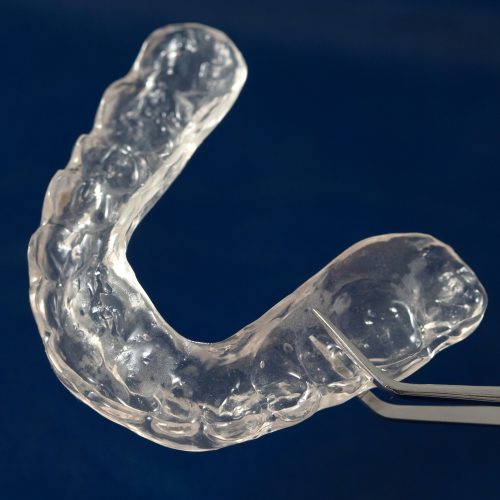Bruxism
SO WHAT IS BRUXISM ?
Bruxism is the excessive clenching or grinding of teeth that is not part of normal chewing movements. It can cause considerable pain and tooth sensitivity. In very serious cases it may cause permanent damage to the jaw and jaw joints.
Excessive clenching or grinding in adults and children can occur during day or night.
However , if the clenching is happening during the night, there is no conscious control over it.
SIGNS AND SYMPTOMS OF BRUXISM
A combination of physical and psychological factors are believed to contribute to bruxism, they are all due to the clenching and grinding of teeth:
- Physical stress such as illness, nutritional deficiencies or dehydration, particularly in children
- Psychological stress, anxiety and tension adults and kids
- Studies have shown that night bruxism is a sleep disorder – and is mostly picked up by a partner
- Cooked or misplaced teeth
- An improper bite from a high Filling can also lead to clenching behaviour
THINGS YOU MAY NOTICE
- Pain in the teeth and sensitivity to heat and cold
- Chronic facial pain with tension headaches, caused by intense muscle contraction.
- People around you may comment on the noise your teeth make when ground together
- Flattened and worn tooth surfaces, which may reveal the underlying yellow dentine layer
- Broken or chipped teeth
- Loose teeth with possible damage to the tooth sockets
- Stiffness and pain in the jaw joint muscles. This can restrict the opening of the jaw and make chewing difficult. This can result in TMJ , Earache or pain in the jaw joint.
Various symptoms reflect the strength and frequency of the clenching and grinding involved. Some people who clench their teeth tightly may experience tension related headaches, but they may have little, to no damage to their teeth or jaw joint. Others who experience severe grinding may have damaged teeth and jaw joint problems. People with mild tooth grinding may have worn tooth surfaces but no jaw or joint pain or tooth sensitivity. These individuals may not realise that they suffer from bruxism and this is why it is important to have regular dental check-ups.
TREATMENT OF BRUXISM
If your dentist suspects that you have general health problems he may recommend a visit to your GP or refer you to a specialist .
Your dentist may give other grinding Teeth solutions.
If these recommended tips do not work, for those with mild to severe grinding behaviour, your dentist may recommend an occlusal splint.
The splint can also be called a night guard.
This splint is worn at night and is made from a moulded hard plastic that fits over the upper or lower teeth and helps to prevent further wear on the tooth surfaces.
REPAIR OF DAMAGE TO TEETH
Some general dental treatment may be necessary to repair damaged teeth. Dental fillings, crowns or inlays may be needed to replace the damaged tooth surfaces. Some cases may require root canal treatment when tooth fractures have extended to the pulp. Additionaly to this, specialist orthodontic treatment may be required to realign misplaced or crooked teeth.
In extreme cases, extraction may be the only option. If this is the case, partial dentures, dental bridges or dental implants can replace the missing teeth.


